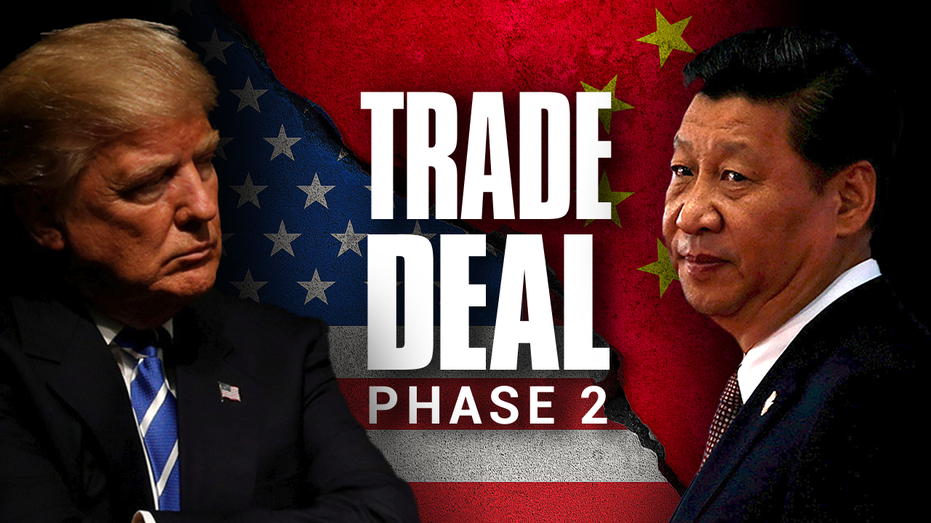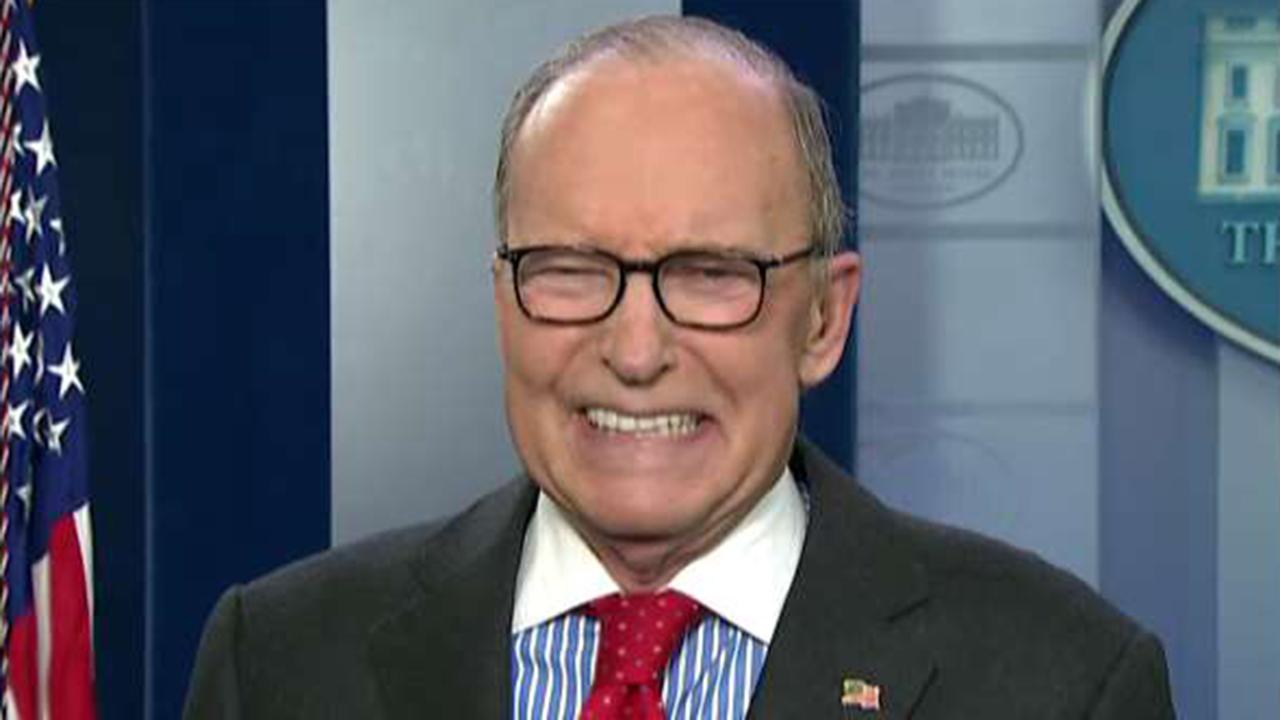US-China trade war: Phase two talks zero in on Beijing's 'draconian' rules
'Earth-shaking' phase one deal will carry US to next round, top economic adviser says
The U.S. and China are setting their sights on a second trade pact now that the ink has dried on phase one.
Looking ahead, "there are really three buckets of issues,” Jeremie Waterman, president of the China Center and vice president for Greater China at the U.S. Chamber of Commerce, told FOX Business, pointing to forced technology transfer, subsidy issues and digital trade and data.
A more comprehensive deal could help the Trump administration deliver on its promise to address a more than $300 billion trade imbalance between the U.S. and China as well as address longstanding points of contention between the two countries.
TAX CUTS 2.0 COULD INCLUDE THIS MIDDLE-CLASS WINDFALL: KUDLOW
China’s “draconian security requirements” can require foreign companies to disclose their source code or other types of intellectual property, and seems more geared toward supporting the country's industrial advancement by giving trade secrets to emerging Chinese competition, Waterman said.
Another area of focus on phase two talks will be subsidies given to sectors within the Chinese economy. Beijing uses the subsidies, which are paid out not just at a national level but at the provincial and local levels as well, to direct resources to state-owned enterprises and private companies that have strategic benefits. In 2018, the government doled out a record $22 billion to corporations.
The third area of focus for phase two talks will be around digital trade and data. For instance, Chinese companies like Alibaba and Tencent have U.S. cloud businesses and face no restrictions in moving their data offshore. The same easy information flow isn’t available to U.S. companies operating inside China.
A fourth issue that could be addressed, according to Waterman, is procurement discrimination, or the Chinese government favoring state-owned or private Chinese companies when purchasing certain goods and services.

Tackling the thorny topics may be easier after President Trump and Chinese Vice Premier Liu He signed the initial trade deal, which Trump says is a start toward “righting the wrongs of the past," last week.
“Phase one is a historic, earth-shaking deal and that’s going to get us through to phase two,” Larry Kudlow, director of the National Economic Council, told FOX Business’ Stuart Varney on Friday.
The phase one agreement says China will buy an additional $200 billion of U.S. goods each year, in addition to making commitments to halt intellectual property theft, open up its financial services industry and refrain from manipulating its currency.
CLICK HERE TO READ MORE ON FOX BUSINESS
In exchange, the U.S. agreed to scale back tariffs on some products made in China. About $375 billion of Chinese merchandise will still be subject to levies.
“These tariffs will stay in place until there is a phase two," Treasury Secretary Steven Mnuchin told FOX Business' Lou Dobbs. "If the president gets a phase two quickly, he'll consider releasing tariffs as part of phase two. If not, there won't be any tariff relief.”
The sooner Beijing gets a phase two deal done, the better for its economy, which has suffered under the weight of the trade war.
The Chinese economy grew at a 6.1 percent clip in 2019, the weakest since 1990, government data showed Friday. Spooked by the trade spat and a weakening job market, Chinese households tightened their purses, leading to an 8 percent year-over-year drop in retail spending.
“The next set of issues is going to be more challenging, but it's critical that the work gets done,” Waterman said.




















